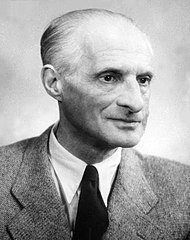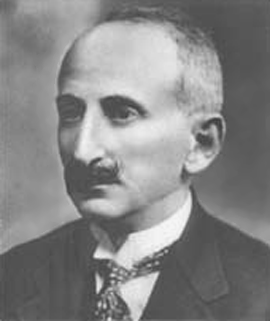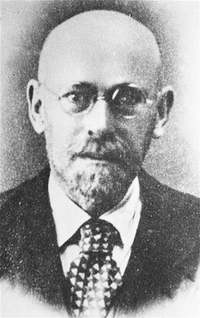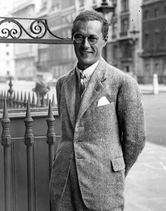After a great success of such Polish history threads as

Leśmian
Bolesław Leśmian (Bolesław Lesman; 1877[1] - 1937) was a Polish poet, artist and member of the Polish Academy of Literature. He was one of the most influential poets of the early 20th century in Poland, one of the best poets of 20th century and cousin of another notable poet of the epoch - Jan Brzechwa and a nephew of famous poet and writer of Young Poland - Antoni Lange.

Brzechwa
Jan Brzechwa (Polish pronunciation: [ˈbʐɛxfa]), (Żmerynka, Podolia, 15 August 1898 - 2 July 1966, Warsaw, Poland) was a Polish poet and author, known mostly for his contribution to children's literature. He was born Jan Wiktor Lesman to a Polish family of Jewish descent.[1]

Some people say that even Adam Mickiewicz, the greatest Polish poet, was partly Jewish.
lukaszrokicki.pl/2009/04/19/czy-mickiewicz-byl-zydem
Bruno Schulz (July 12, 1892 – November 19, 1942) was a Polish writer, fine artist, literary critic and art teacher born to Jewish parents,[1] and regarded as one of the great Polish-language prose stylists of the 20th century. Schulz was born in Drohobych, in the province of Galicia then part of the Austro-Hungarian Empire, and spent most of his life there. He was killed by a German Nazi officer.
.jpg/220px-Bruno_Schulz_(1892_%E2%80%93_1942).jpg)
Stanisław Lem (Polish pronunciation: [staˈɲiswaf ˈlɛm] ( listen); 12 September 1921 – 27 March 2006) was a Polish writer of science fiction, philosophy and satire. His books have been translated into 41 languages and have sold over 27 million copies.[1] He is perhaps best known as the author of the 1961 novel Solaris, which has been made into a feature film three times. In 1976 Theodore Sturgeon said that Lem was the most widely read science fiction writer in the world.[2] In 1996, Lem was the recipient of the prestigious Polish national award, the Order of the White Eagle.[3]
His works explore philosophical themes; speculation on technology, the nature of intelligence, the impossibility of mutual communication and understanding, despair about human limitations and mankind's place in the universe. They are sometimes presented as fiction, but others are in the form of essays or philosophical books. Translations of his works are difficult due to passages with elaborate word formation, alien or robotic poetry, and puns. Multiple translated versions of his works exist.


Leśmian
Bolesław Leśmian (Bolesław Lesman; 1877[1] - 1937) was a Polish poet, artist and member of the Polish Academy of Literature. He was one of the most influential poets of the early 20th century in Poland, one of the best poets of 20th century and cousin of another notable poet of the epoch - Jan Brzechwa and a nephew of famous poet and writer of Young Poland - Antoni Lange.

Brzechwa
Jan Brzechwa (Polish pronunciation: [ˈbʐɛxfa]), (Żmerynka, Podolia, 15 August 1898 - 2 July 1966, Warsaw, Poland) was a Polish poet and author, known mostly for his contribution to children's literature. He was born Jan Wiktor Lesman to a Polish family of Jewish descent.[1]

Some people say that even Adam Mickiewicz, the greatest Polish poet, was partly Jewish.
The origin of our probably the greatest Polish poets already aroused controversy in the nineteenth century. In our time too here and there are revived theories of Jewish descent of Mickiewicz - both in anti-Semitic circles as well as among people willing to accuse of anti-Semitism of those who ... do not recognize the thesis of the Semitic genealogy of our bard. Where did the rumors about this came from? Can they be true? At the beginning of it the fundamental note. Well, Jewish origin is inherited in the female line, which means that a Jew can be only a man whose mother was Jewish. For this reason, the origin of the father of our poet is not relevant to resolve this issue.
lukaszrokicki.pl/2009/04/19/czy-mickiewicz-byl-zydem
A few famous Polish writers or poets were Jewish who they created their masterpieces in Polish:
Bruno Schulz (July 12, 1892 – November 19, 1942) was a Polish writer, fine artist, literary critic and art teacher born to Jewish parents,[1] and regarded as one of the great Polish-language prose stylists of the 20th century. Schulz was born in Drohobych, in the province of Galicia then part of the Austro-Hungarian Empire, and spent most of his life there. He was killed by a German Nazi officer.
.jpg/220px-Bruno_Schulz_(1892_%E2%80%93_1942).jpg)
Stanisław Lem (Polish pronunciation: [staˈɲiswaf ˈlɛm] ( listen); 12 September 1921 – 27 March 2006) was a Polish writer of science fiction, philosophy and satire. His books have been translated into 41 languages and have sold over 27 million copies.[1] He is perhaps best known as the author of the 1961 novel Solaris, which has been made into a feature film three times. In 1976 Theodore Sturgeon said that Lem was the most widely read science fiction writer in the world.[2] In 1996, Lem was the recipient of the prestigious Polish national award, the Order of the White Eagle.[3]
His works explore philosophical themes; speculation on technology, the nature of intelligence, the impossibility of mutual communication and understanding, despair about human limitations and mankind's place in the universe. They are sometimes presented as fiction, but others are in the form of essays or philosophical books. Translations of his works are difficult due to passages with elaborate word formation, alien or robotic poetry, and puns. Multiple translated versions of his works exist.







